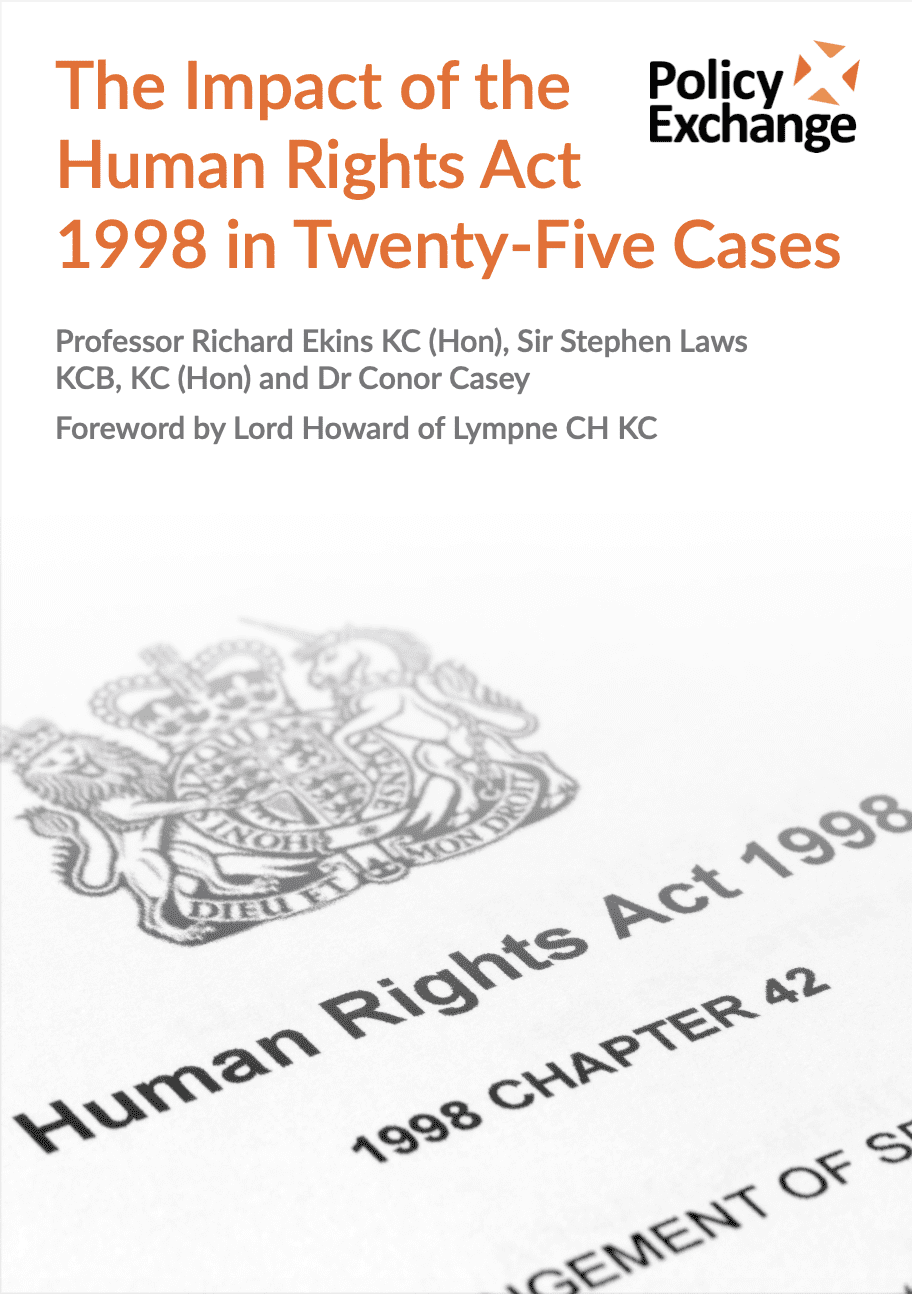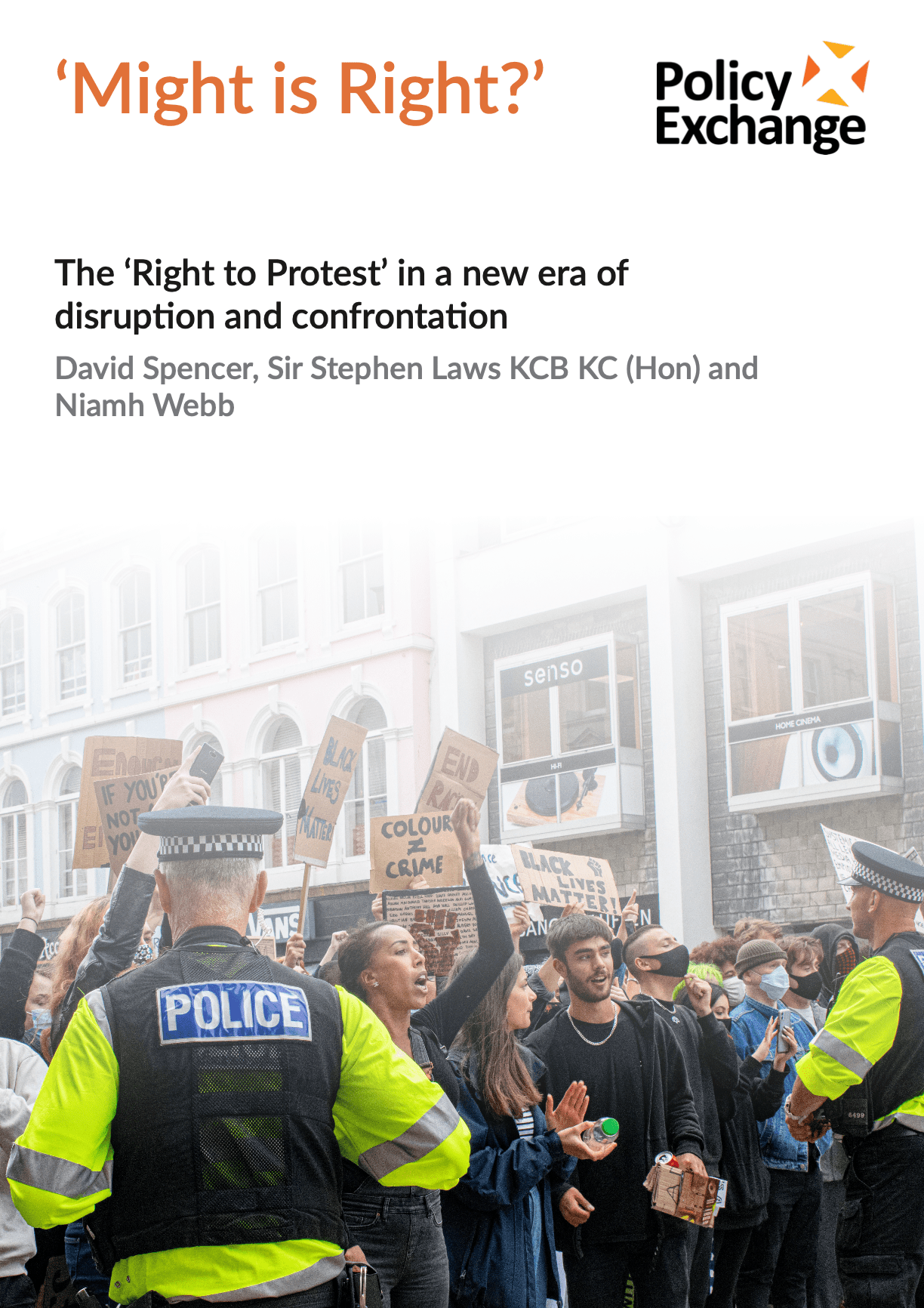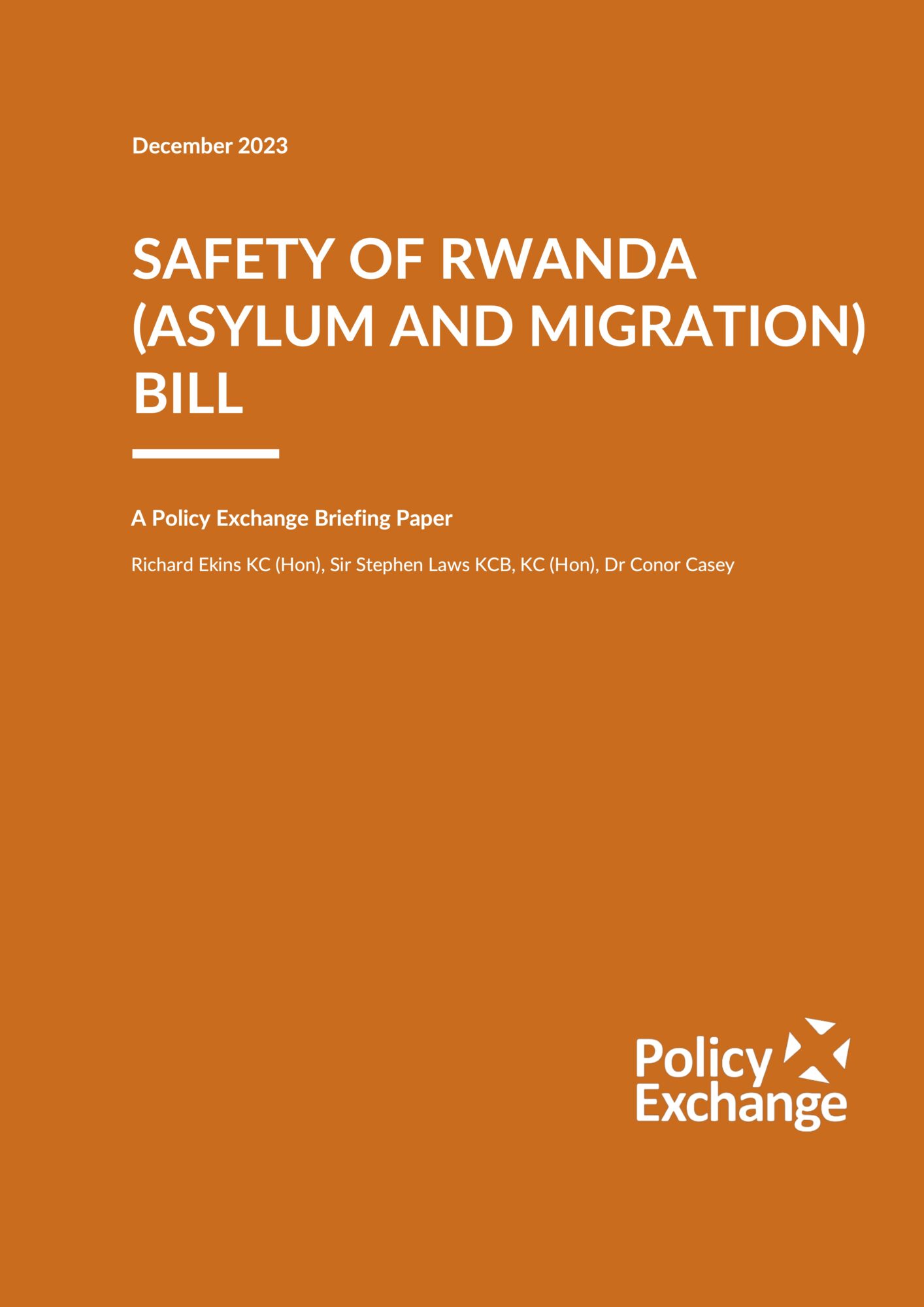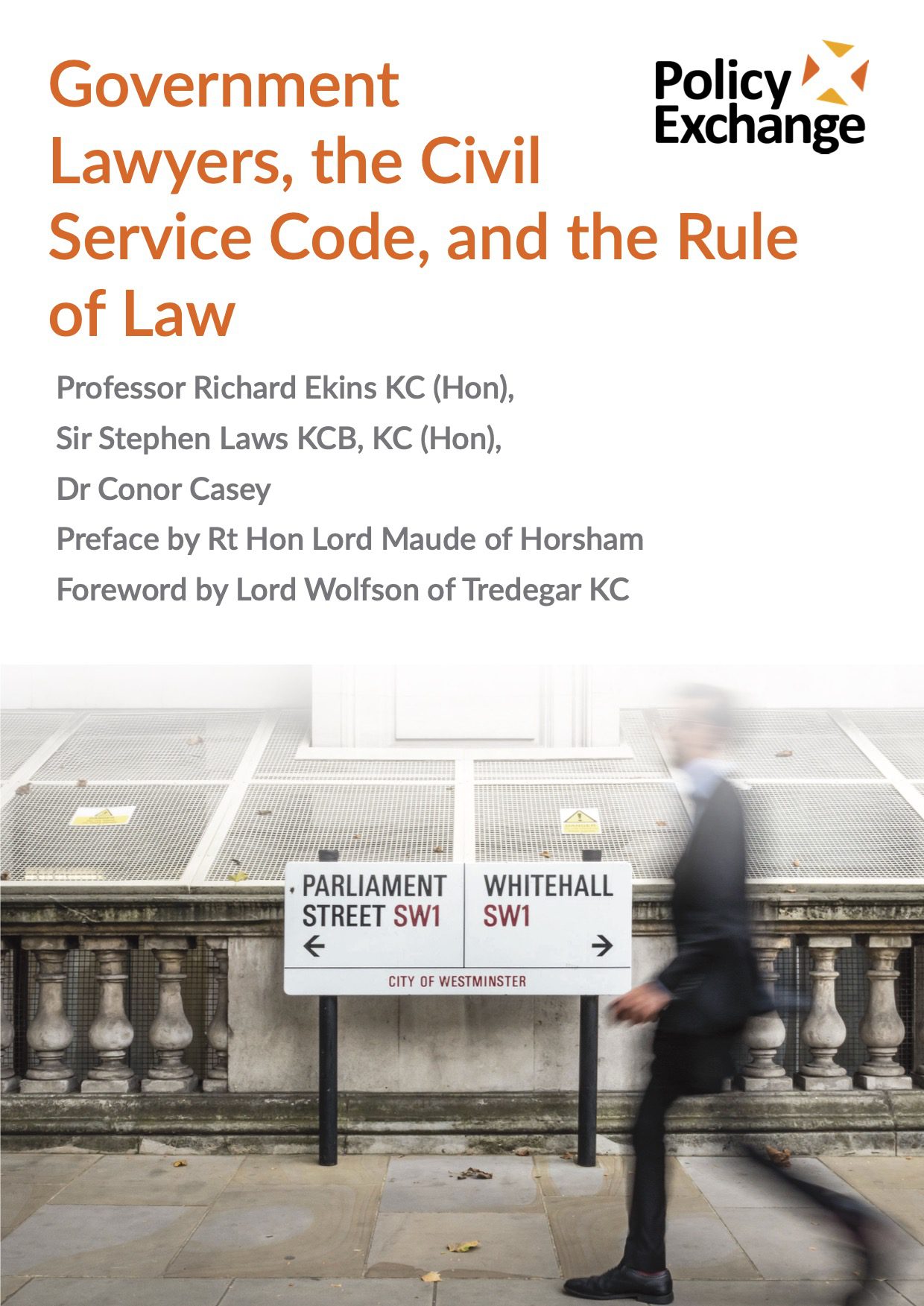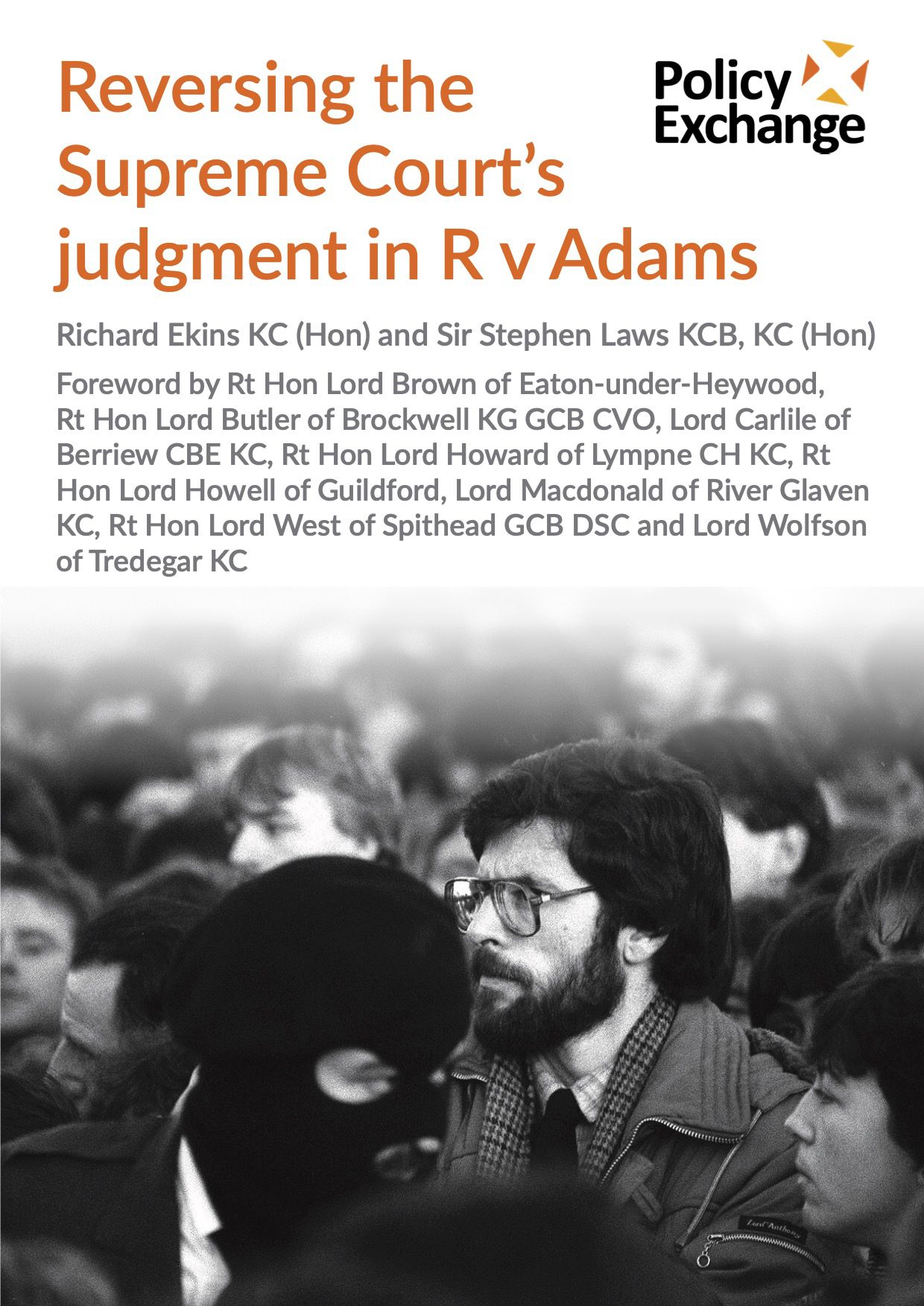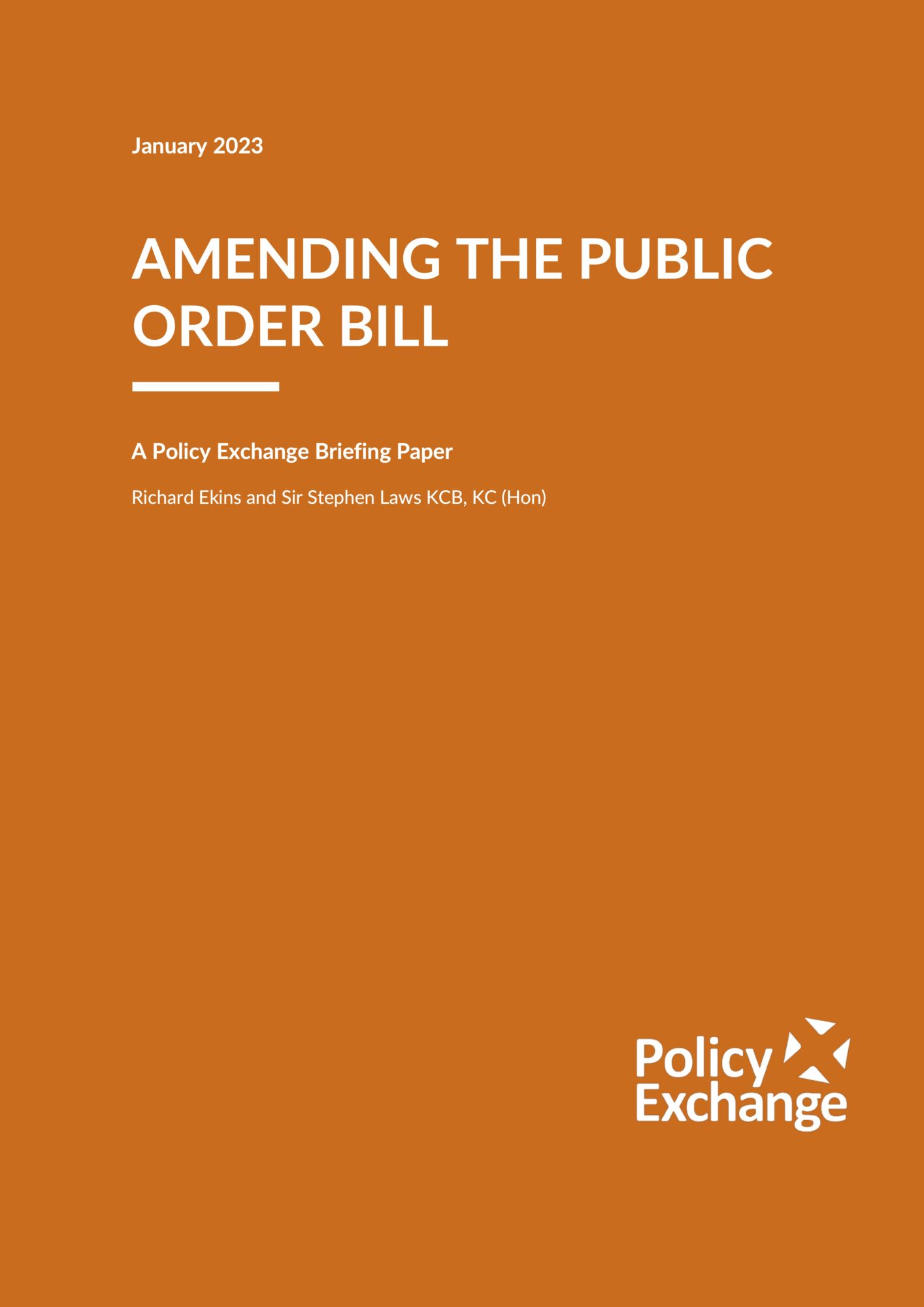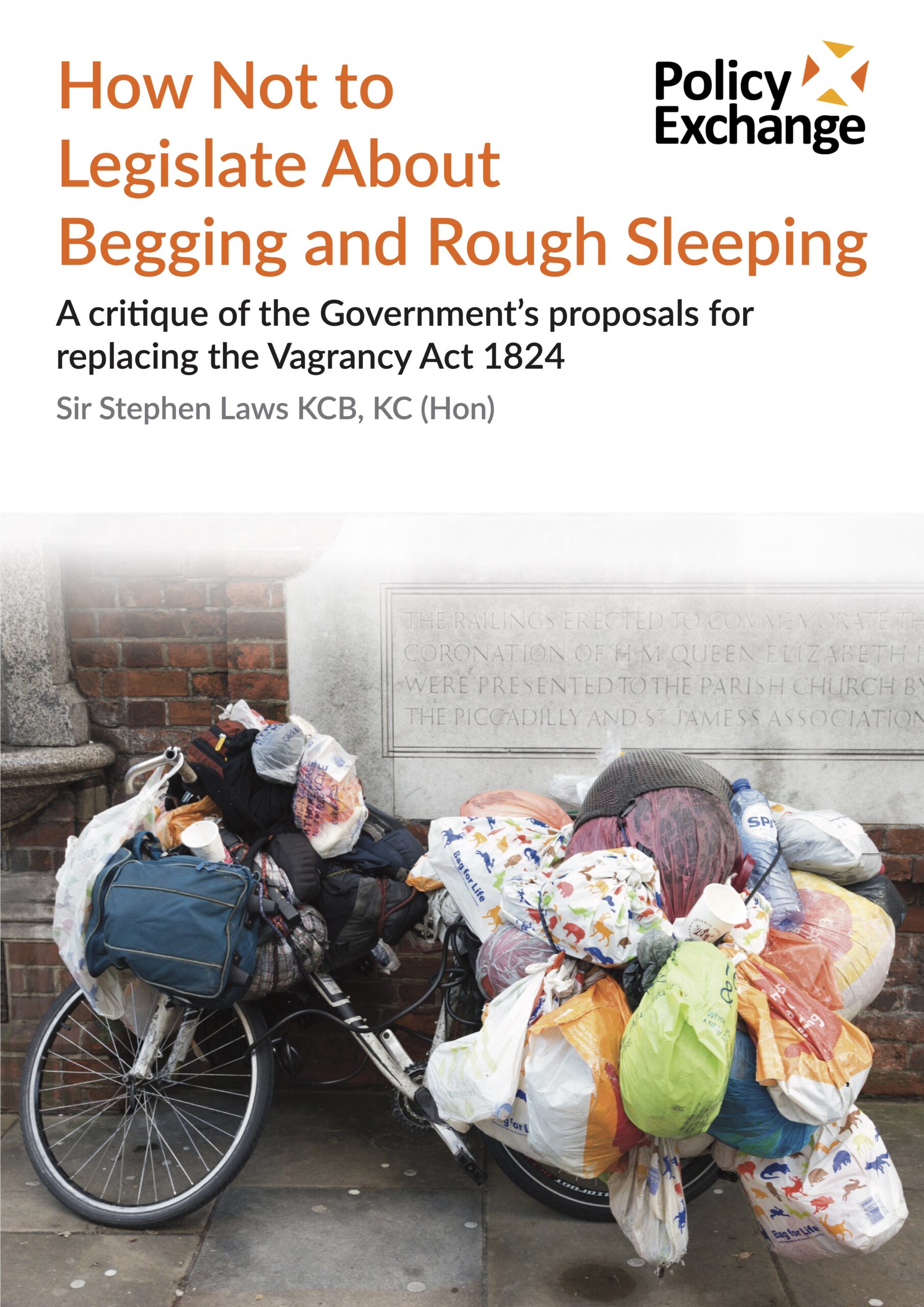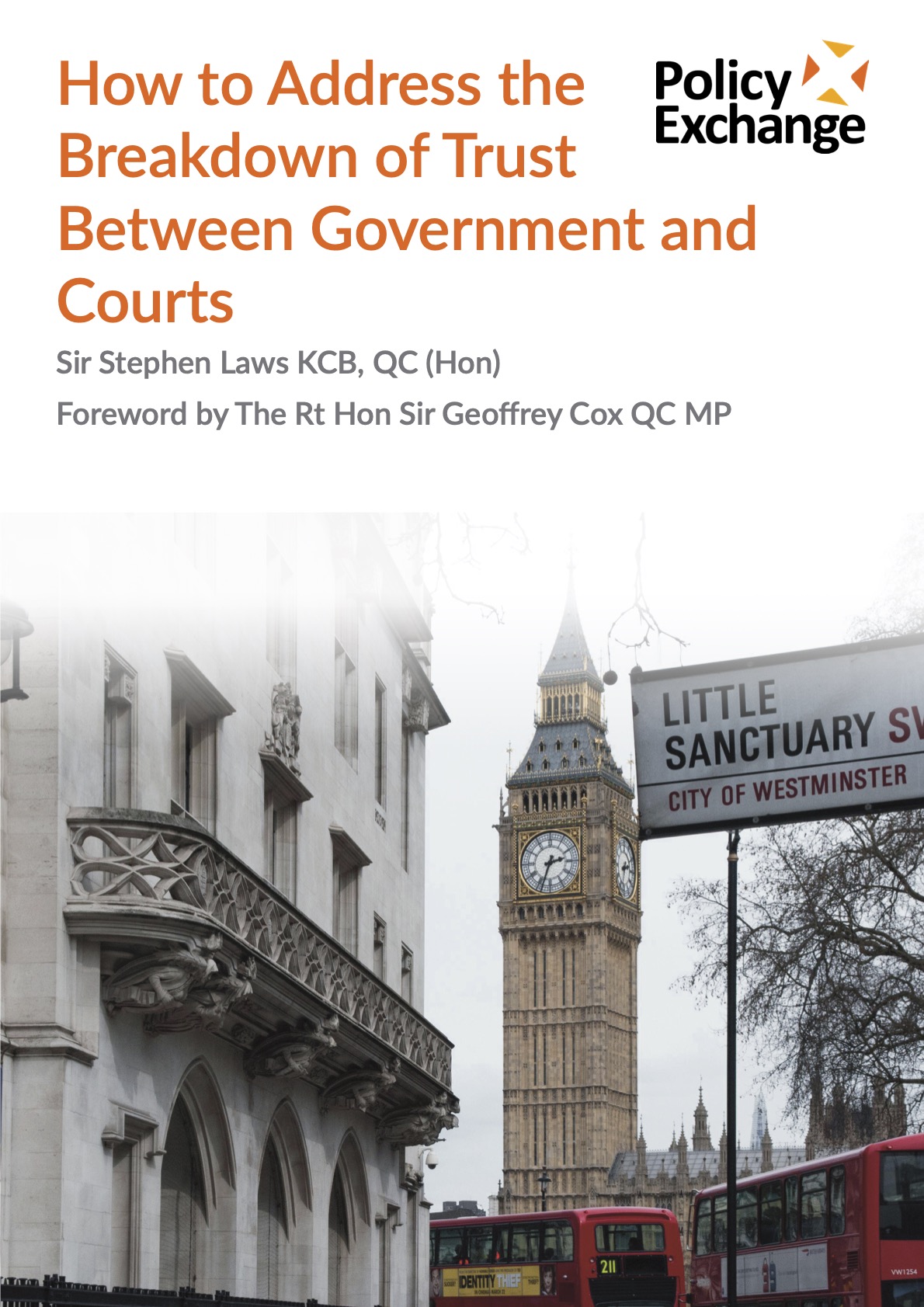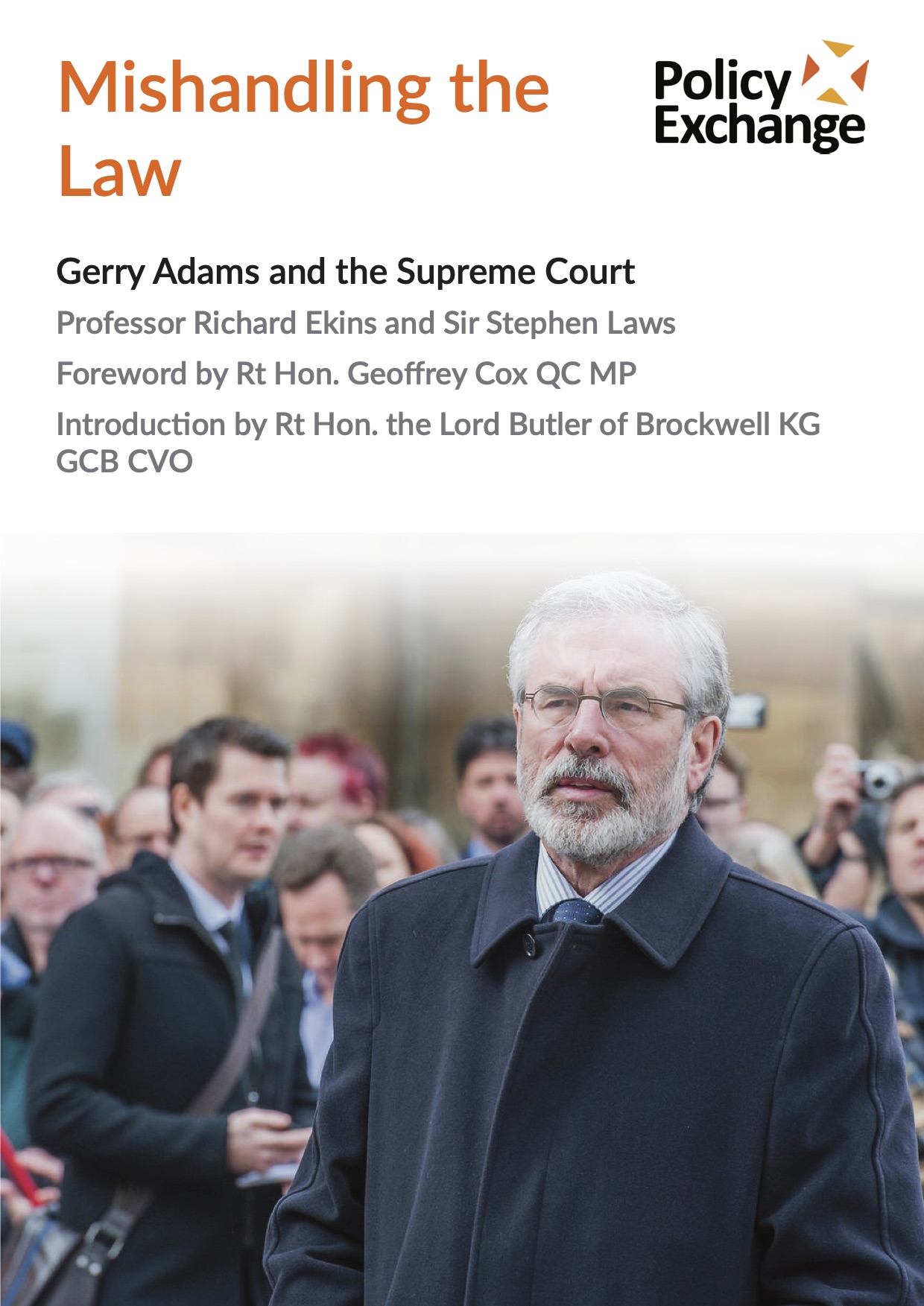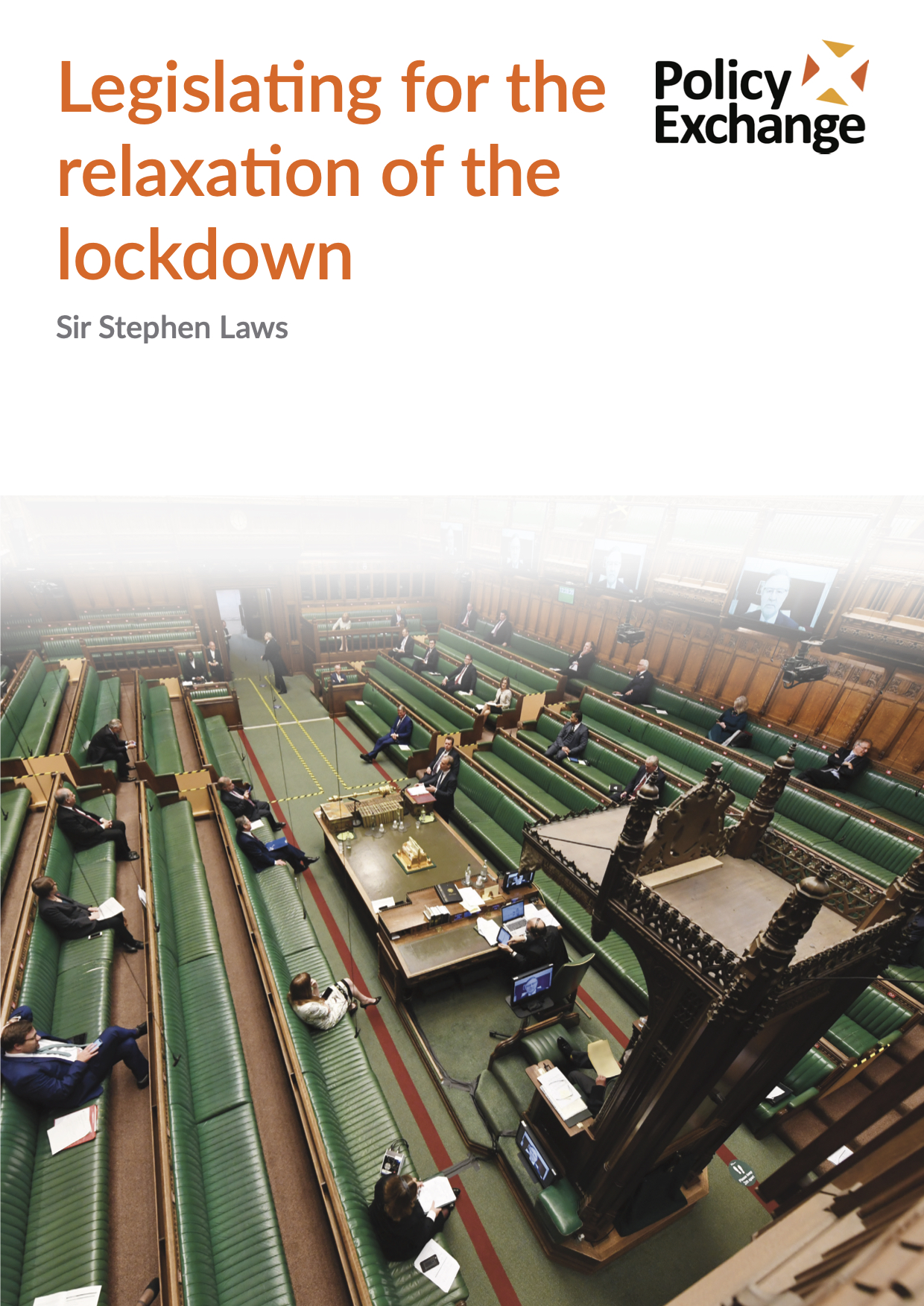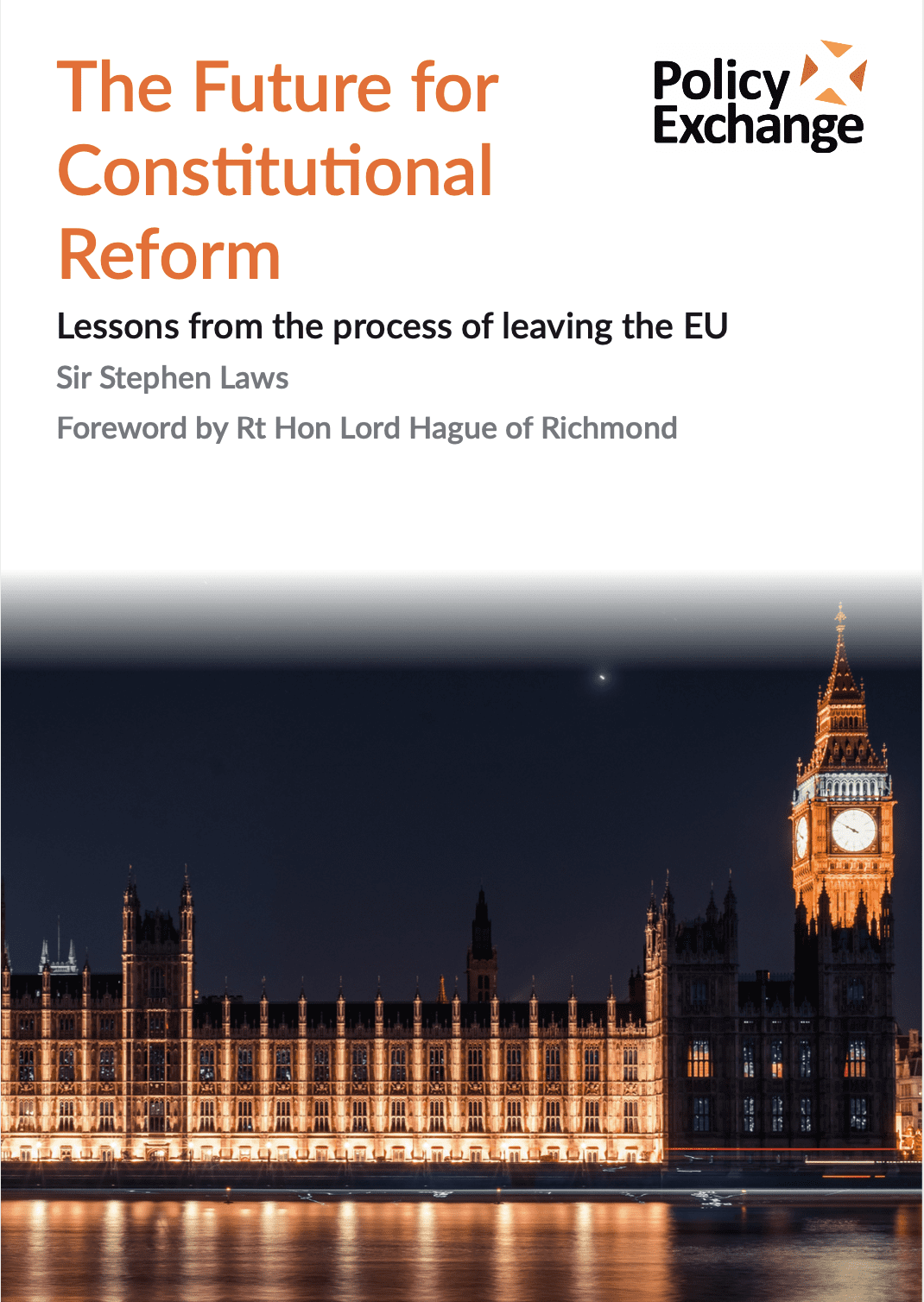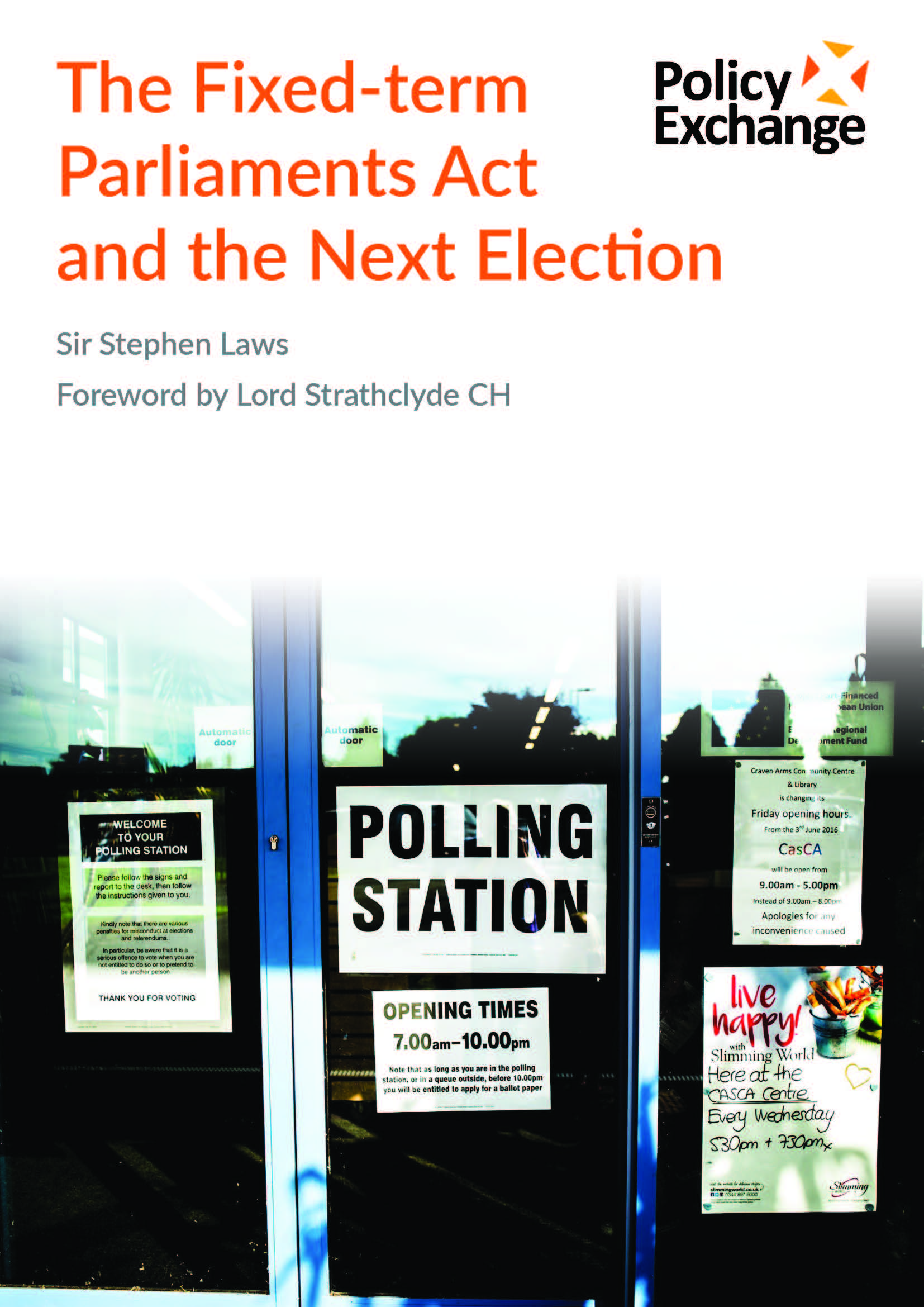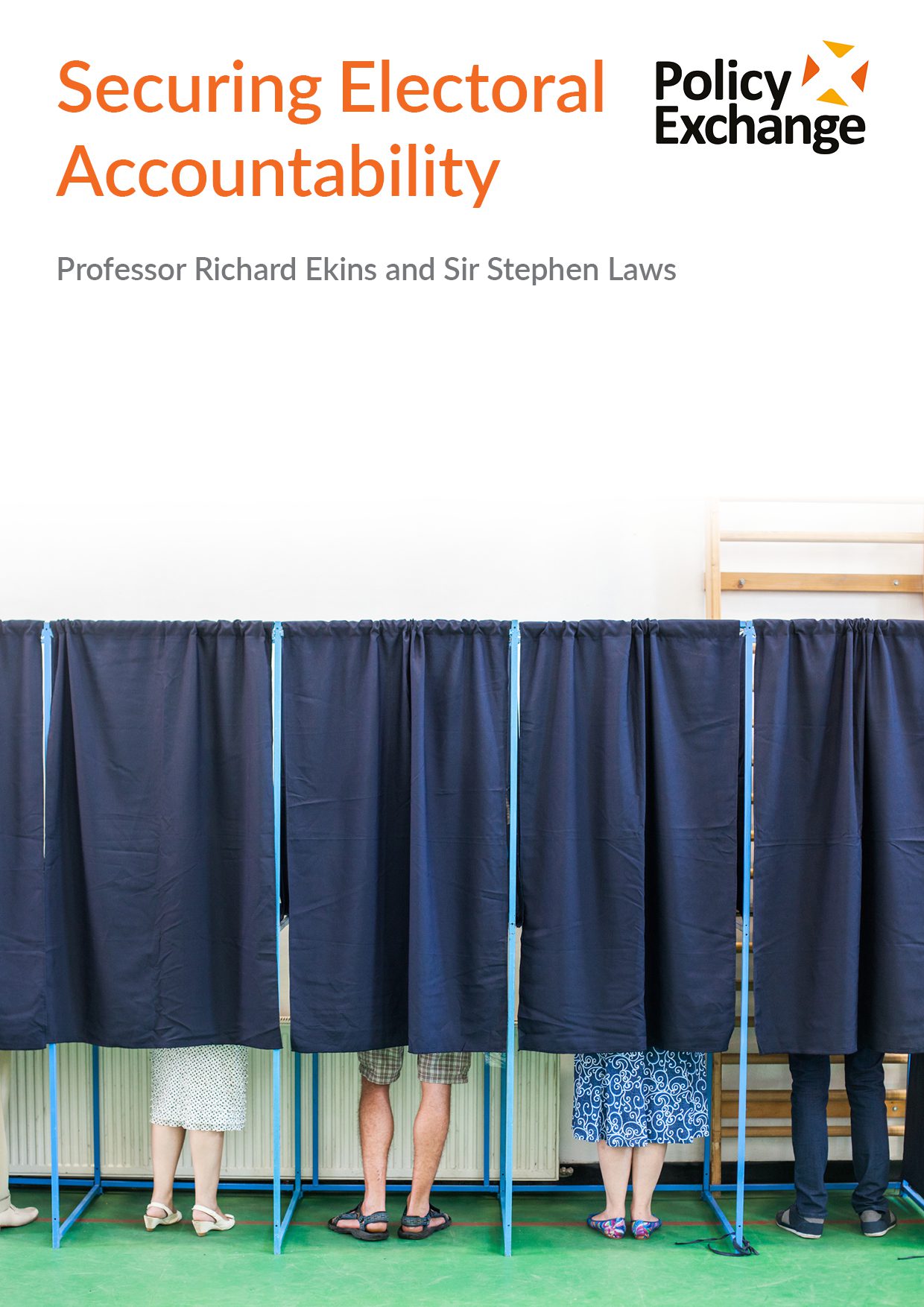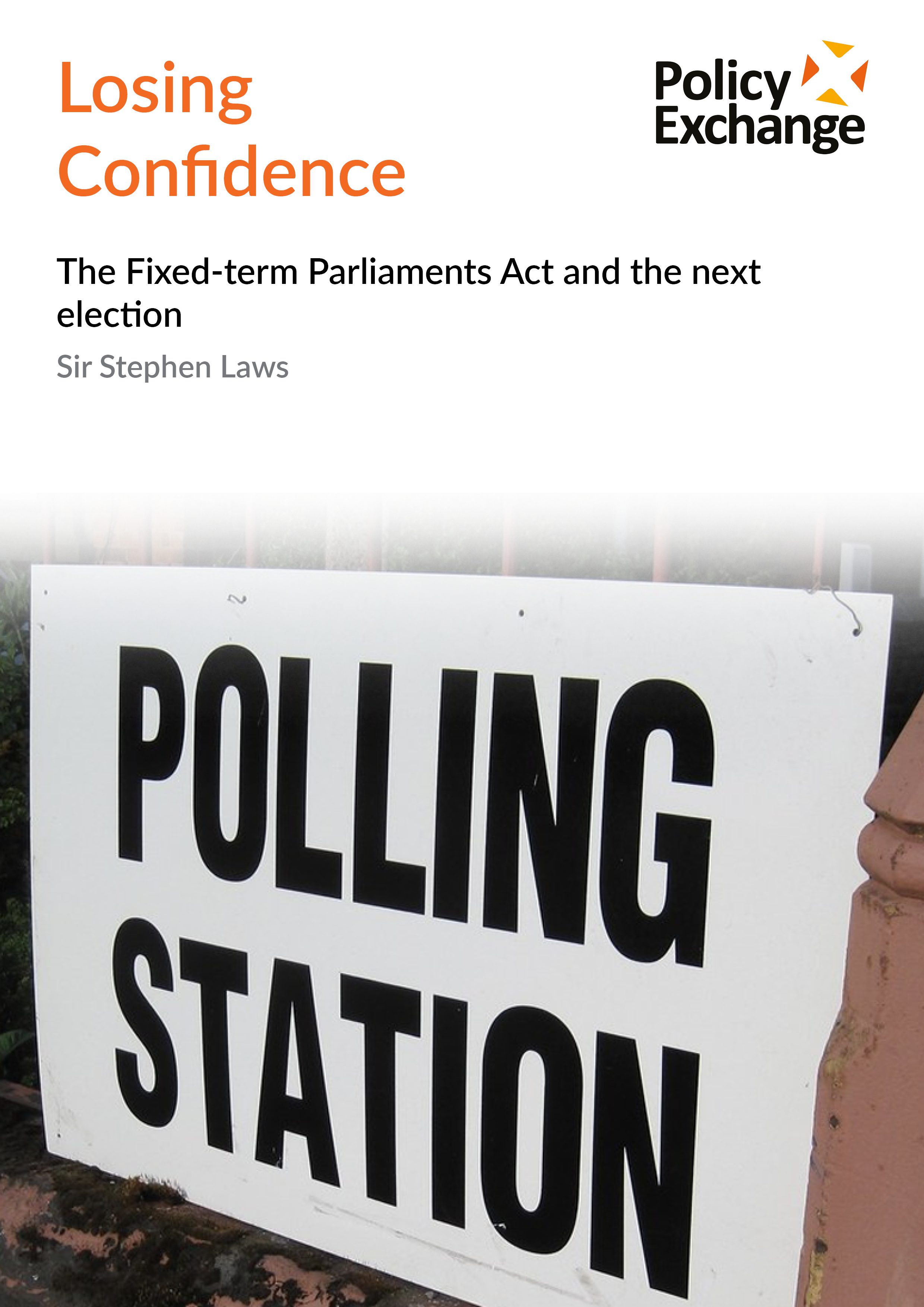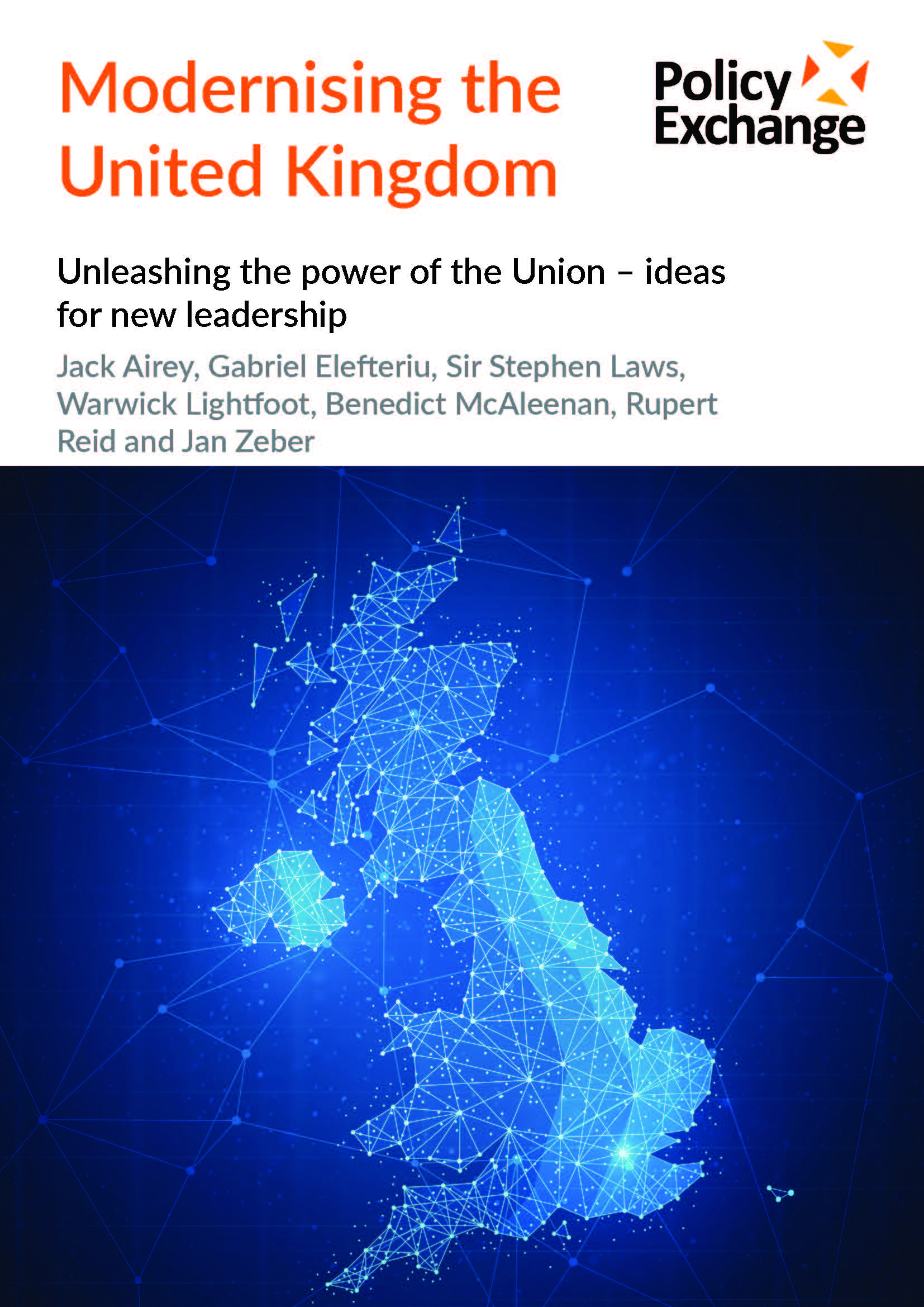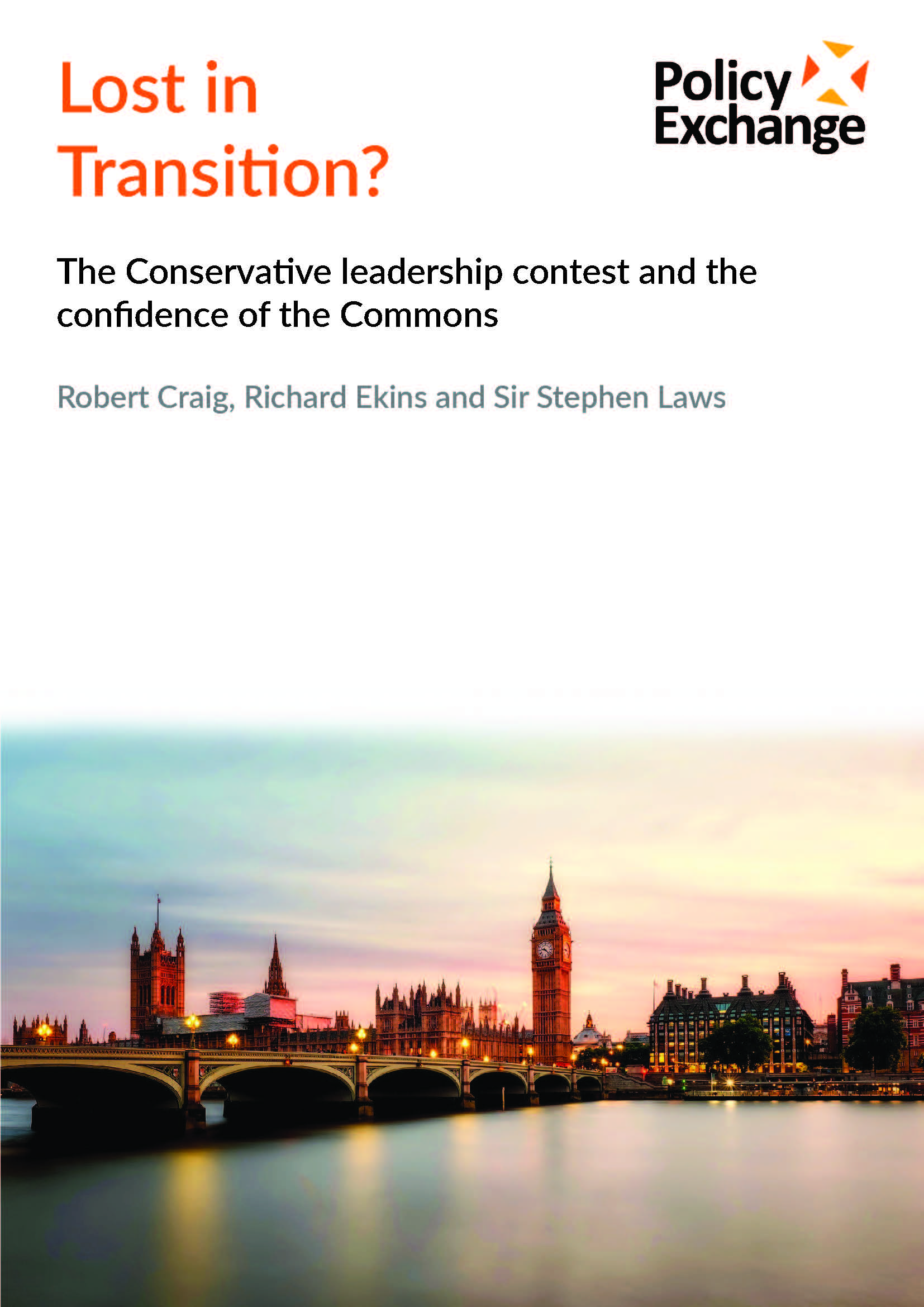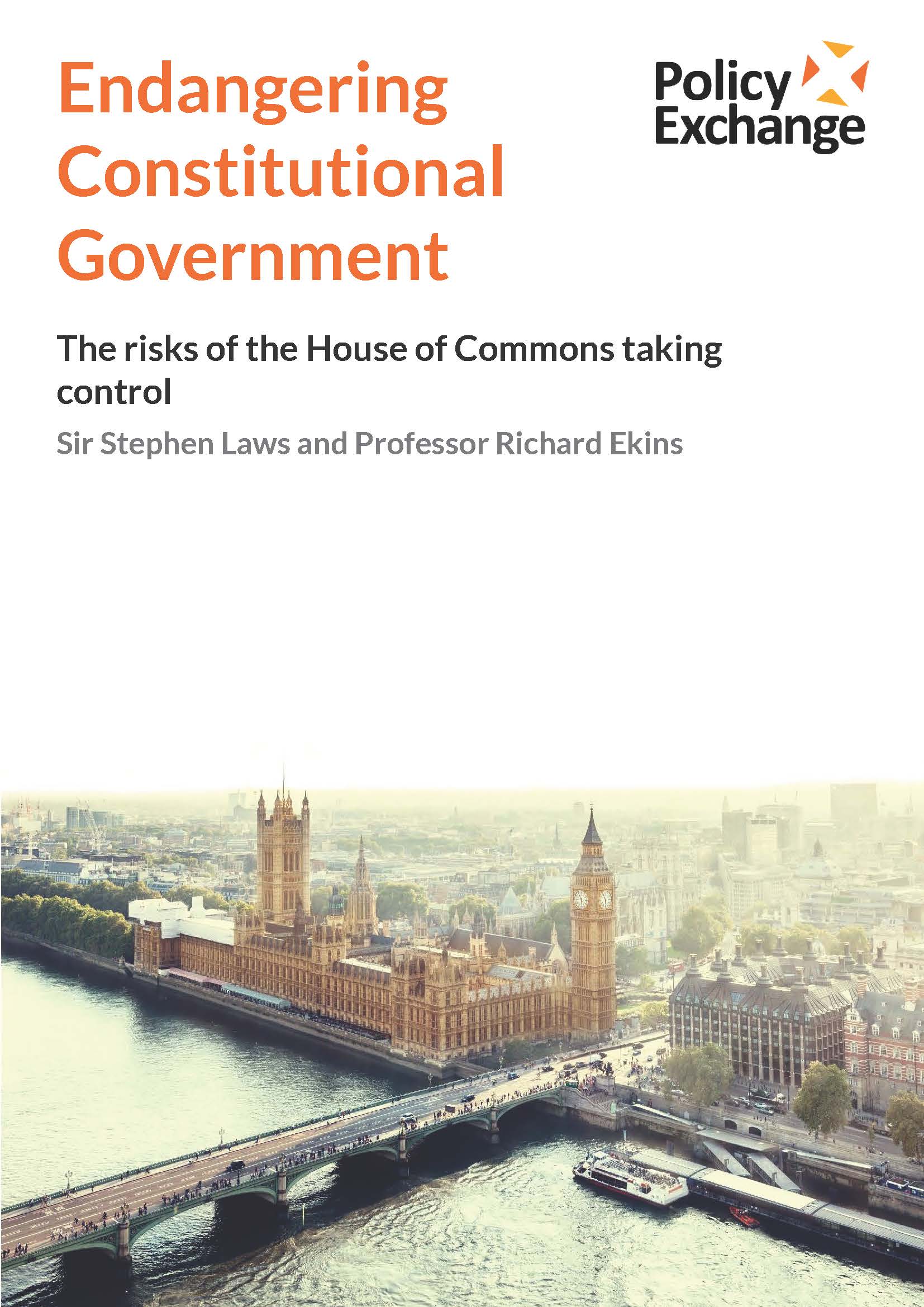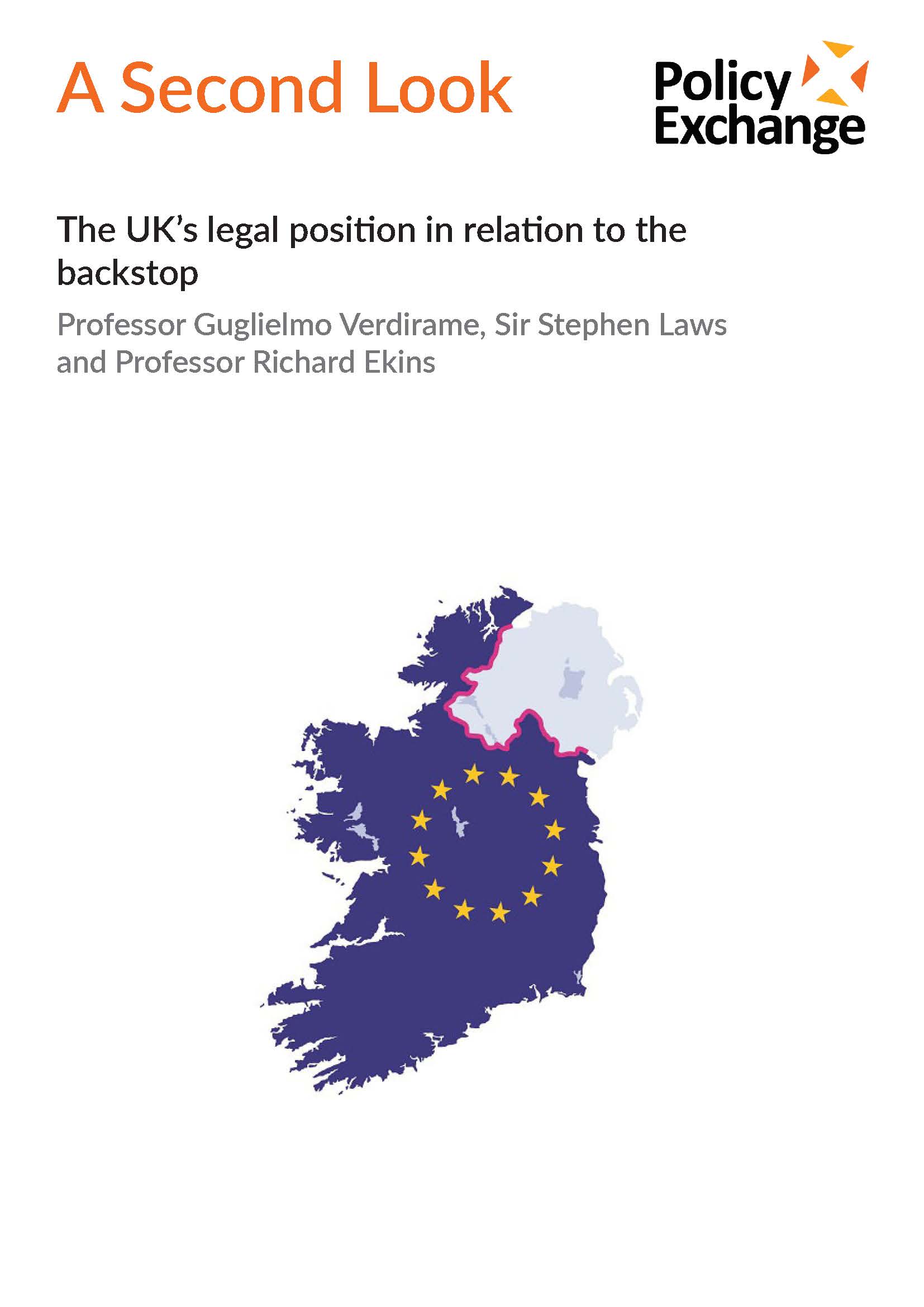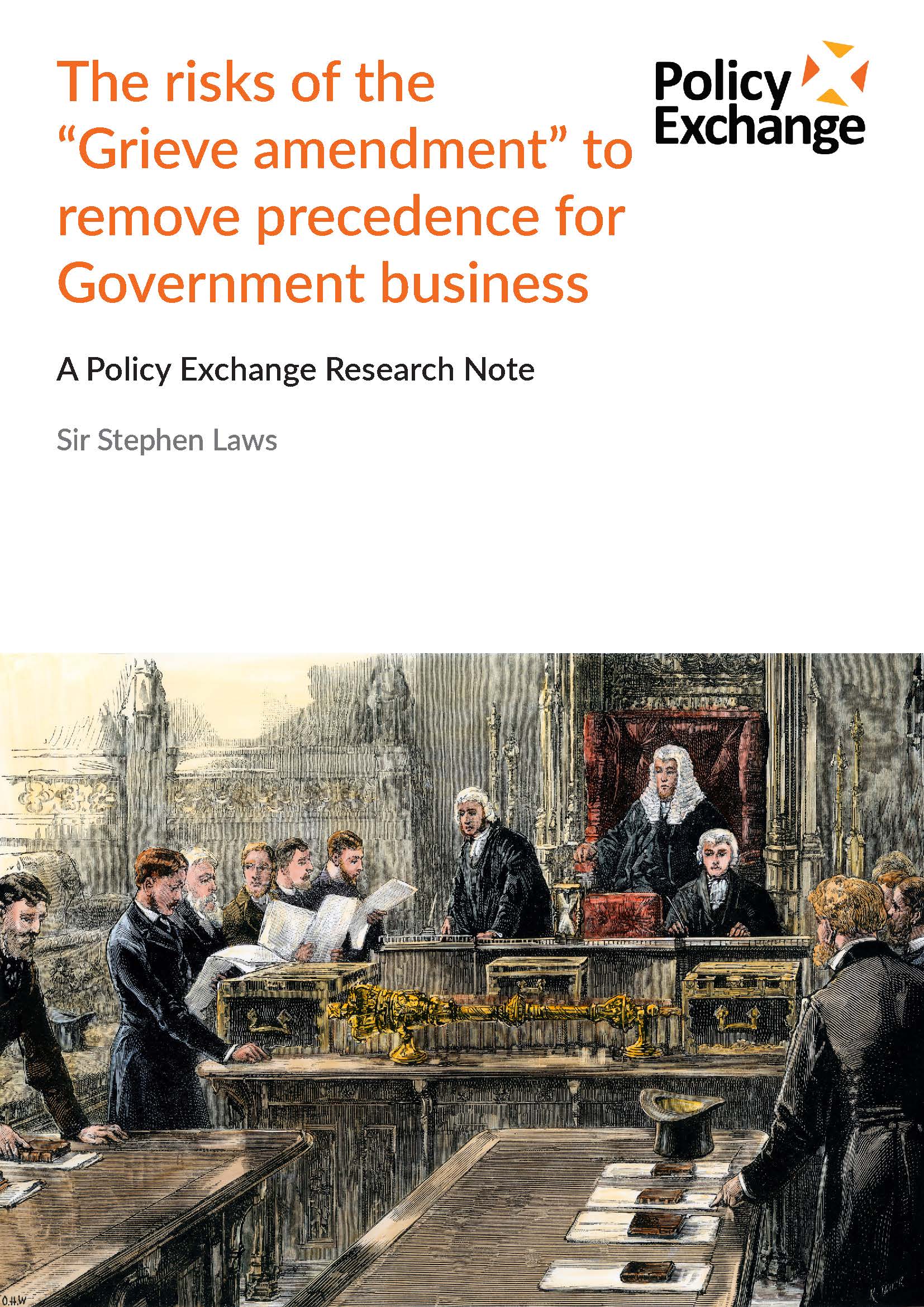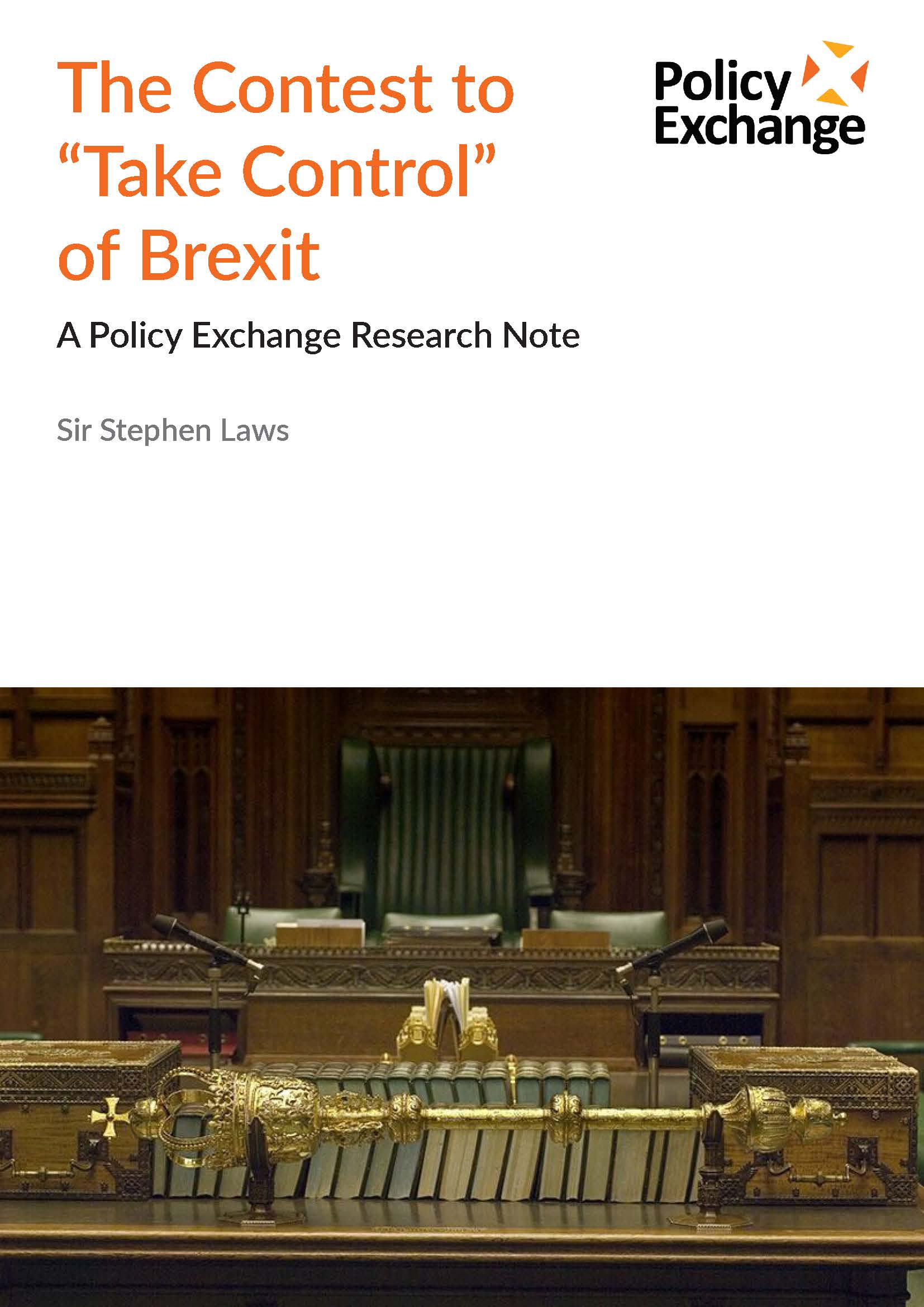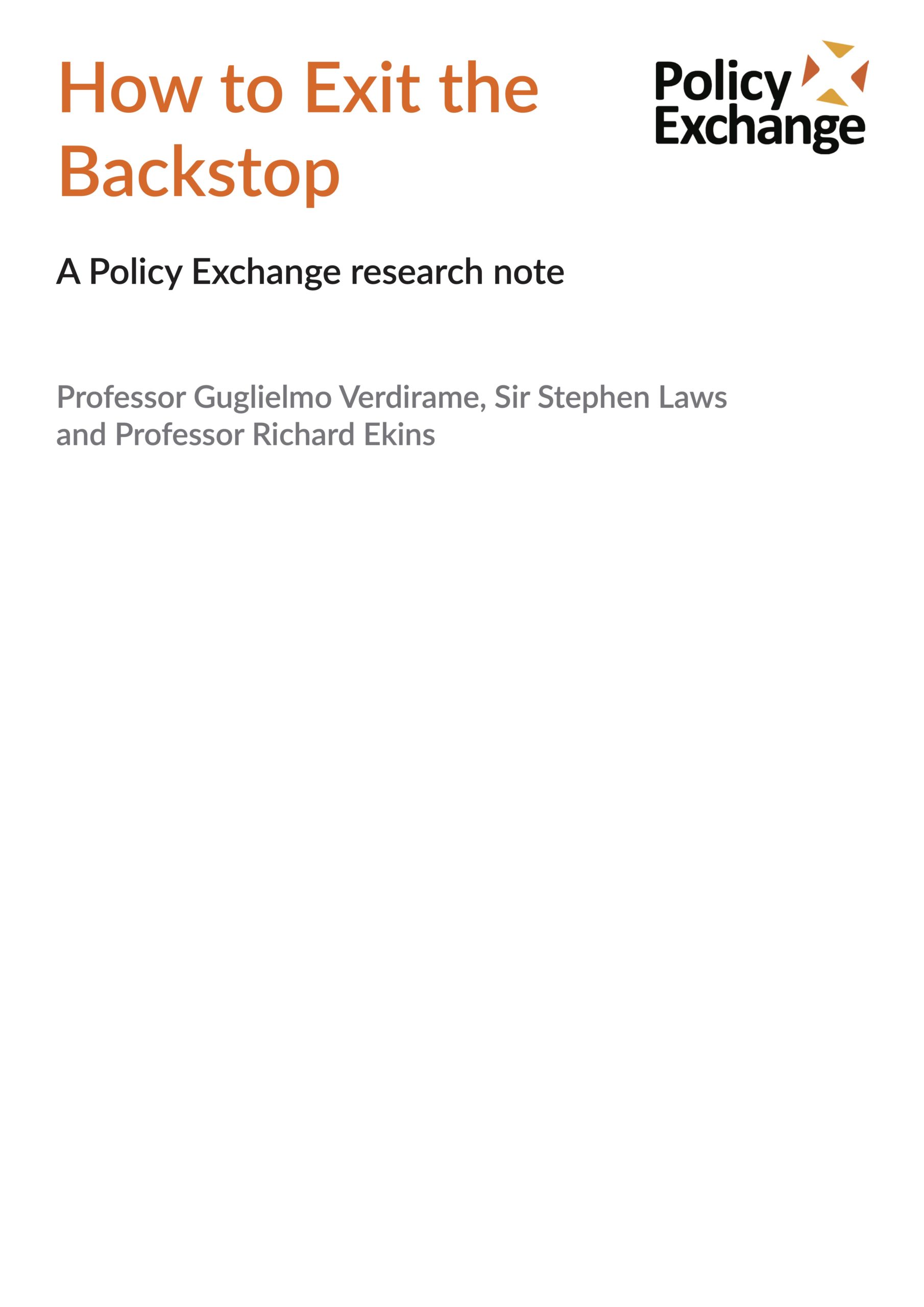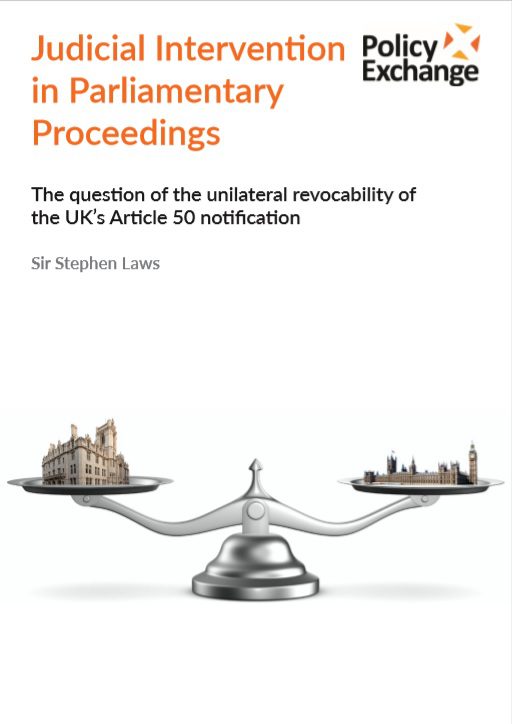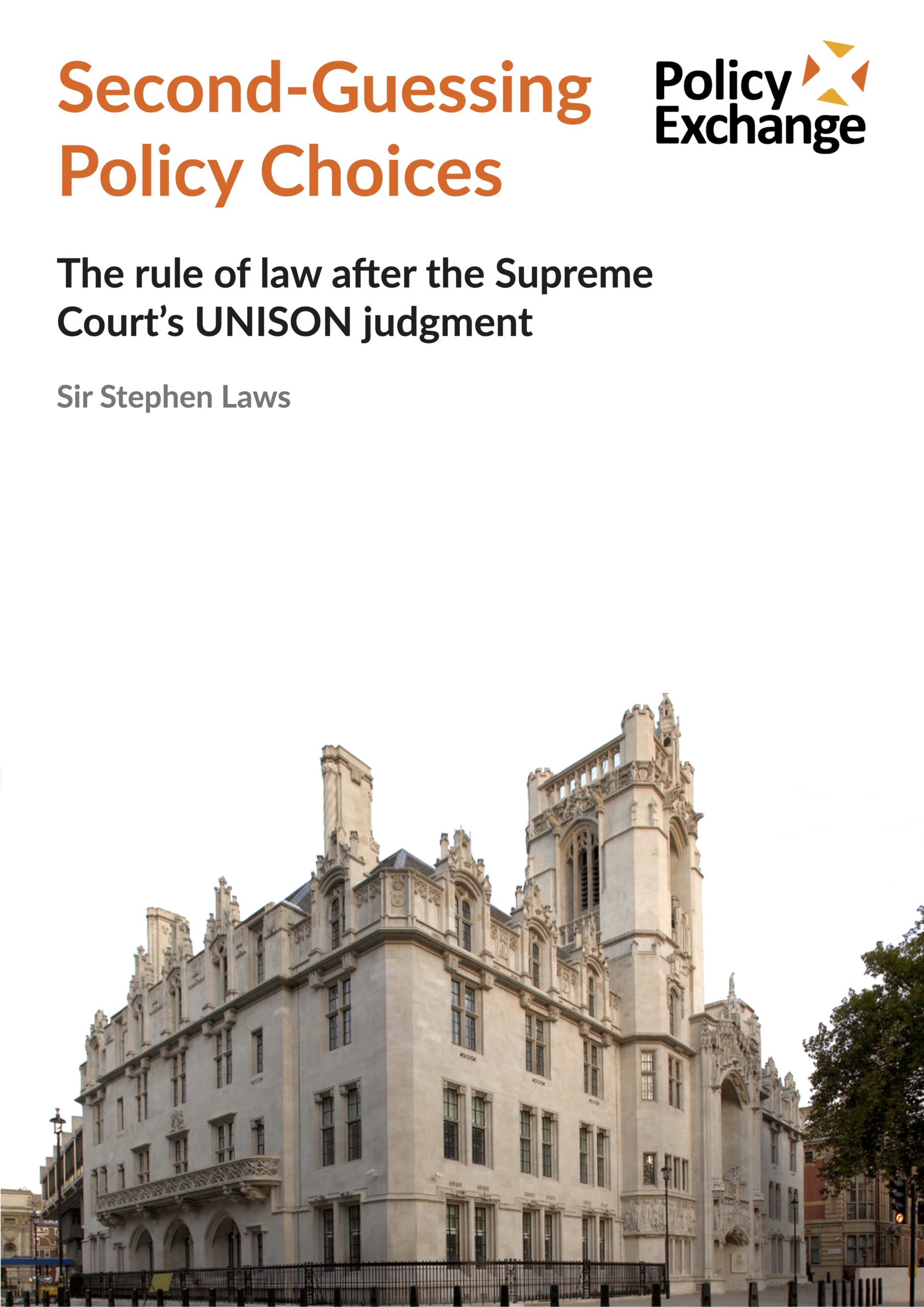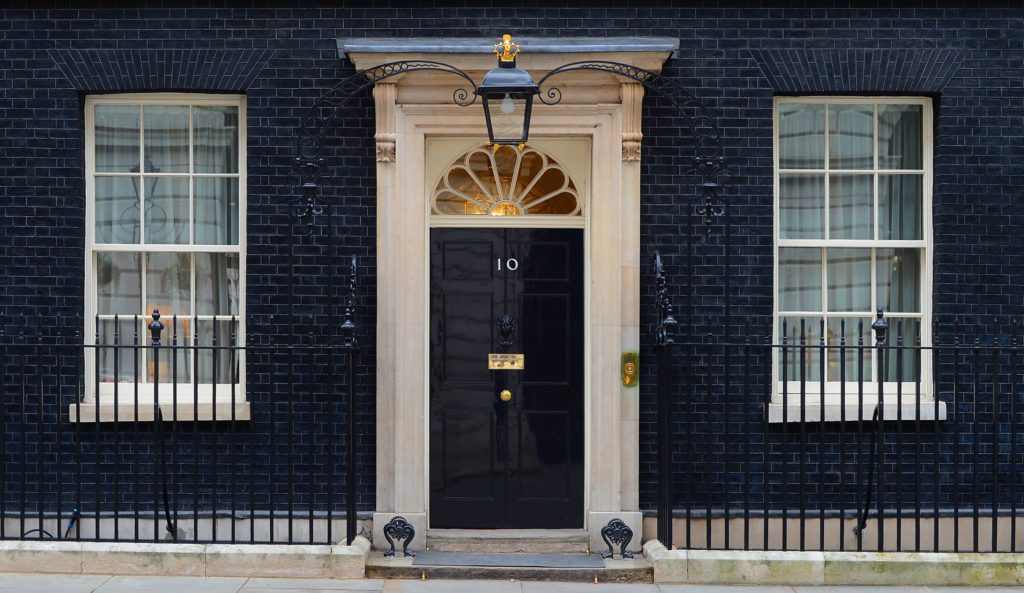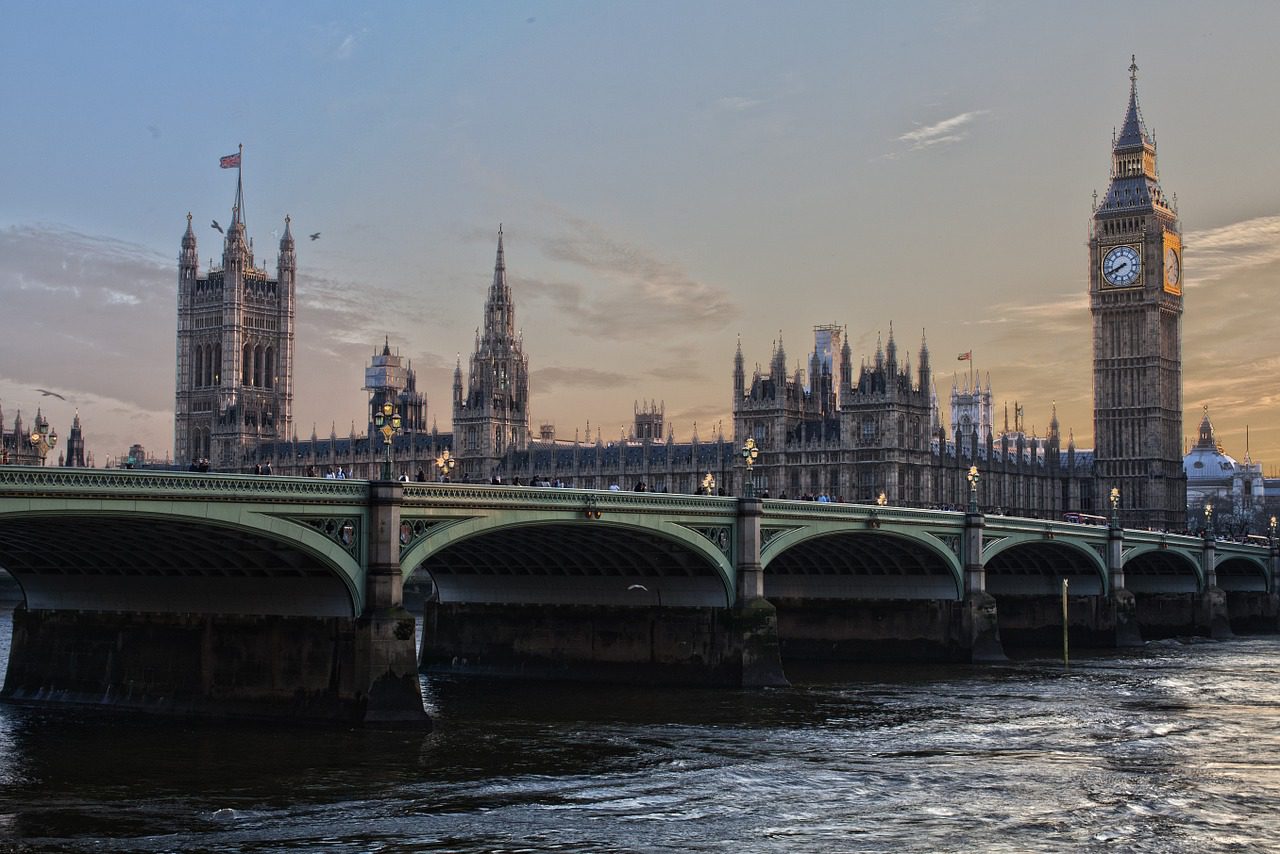Sir Stephen Laws
Senior Fellow, Judicial Power Project
Sir Stephen Laws KCB KC (Hon) is a Senior Research Fellow on Policy Exchange’s Judicial Power Project and writes on constitutional and legal matters. He was First Parliamentary Counsel from 2006-12. As such, he was the Permanent Secretary in the Cabinet Office responsible for the Office of the Parliamentary Counsel (an office in which he had served as a legislative drafter since 1976), for the offices of the Government Business Managers in both Houses and for constitutional advice to the centre of Government. After he retired in 2012, he was a member of the McKay Commission on the consequences of devolution for the House of Commons and subsequently a member of the advisory panel for Lord Strathclyde’s review of secondary legislation and the primacy of the House of Commons. From December 2020 until October 2021, he served as a panel member on the Government-appointed Independent Human Rights Act Review.
Download Publication Online Reader The Northern Ireland Troubles (Legacy and Reconciliation) Act 2023 is a controversial Act of Parliament. But sections 46 and 47 were not controversial when enacted. These two provisions were adopted unanimously by Parliament in response to the Supreme Court’s 2020 judgment in R v Adams, in which the Court wrongly allowed Gerry Adams’s appeal against his 1975 conviction for attempting to escape from lawful custody. However, […]
Download Publication Online Reader This new paper for Policy Exchange’s Judicial Power Project shows how the Human Rights Act has had a major, negative impact on how the UK is governed – and on the way in which many important questions about public policy have been resolved. The paper contributes to the study of the impact of the Human Rights Act by picking out, from each year of the Act’s […]
Download Publication Download Polling We have entered a new era of increasingly disruptive protests. This report shows how decisions made by the police, prosecutors, courts, Parliament and Government mean that undue weight is being placed on the rights and interests of disruptive (and, at times, criminal) activists at the expense of the rights, wellbeing and interests of ordinary members of the public. This report addresses two central questions: Do the […]
Download Publication Online Reader A new research note published by Policy Exchange today recommends that the House of Commons support the Safety of Rwanda (Asylum and Migration) Bill when it receives its second reading tomorrow (Tuesday 12 December). The Bill is described as an “intelligent and broadly effective response to the Supreme Court’s recent Rwanda judgment”. The Bill does not reject that judgment, or disrespect the Supreme Court […]
Download Publication Online Reader A new research note published by Policy Exchange today argues that there is no constitutional or legal basis for any Government lawyer, even the Attorney General, to refuse to approve the introduction of legislation to Parliament seeking to change domestic law – even if the legislation risks creating tension with the UK’s international law obligations. Related Publications
Download Publication Online Reader In 2020, the Supreme Court allowed Gerry Adams’s appeal against his conviction, in 1975, for attempting to escape from lawful custody. The judgment was a bad mistake and opened the door for Gerry Adams and others wrongly to sue for compensation for their detention. The judgment also undermined the application of the Carltona principle, which is foundational to modern government. This paper considers an amendment to […]
Download Publication Online Reader New legislation is needed to give effect to a policy that persons who arrive (or attempt to arrive) in the UK unlawfully on a small boat will be removed from the UK and will never be allowed to settle here. There is a strong risk that legislation will be proposed which only appears to address the problem, but which in practice does not enable […]
Download Publication Online Reader The Public Order Bill is an important opportunity to reform the law relating to protest and thus to restore public order to our streets. The Bill as introduced created several new offences which were likely to prove unworkable because they had a “reasonable excuse” defence, which would have left it open to protestors to argue that a conviction would breach their so-called “right to protest”. This […]
Download Publication Online Reader The Levelling-up and Regeneration Bill is to be considered again by the Public Bill Committee on 13 October 2022. One of the few clauses of the Bill yet to be considered is clause 187, which replaces provisions of the Vagrancy Act 1824 about begging and rough sleeping which were repealed earlier this year, but the repeal of which has not yet been brought into force. The […]
Download Publication Online Reader The Independent Review of Administrative Law has been established because of a breakdown of trust between the political institutions of the constitution, namely Parliament and Her Majesty’s Government, on the hand, and the judiciary on the other. This is a serious situation that must be addressed. What is needed is better mutual understanding and clarity, and practical measures that provide reassurance and restore confidence. This paper, […]
The Supreme Court has allowed Gerry Adams’s appeal against his 1975 convictions for escaping from lawful custody. When a court quashes a conviction 45 years later, one might imagine that new evidence must have come to light. Not this time: the case turned on a question of law. The Supreme Court ruled that Mr Adams had not been lawfully detained at all, hence his “escape” was not from lawful custody. As Prof Richard Ekins and Sir Stephen Laws set out, this ruling opens the door for Mr Adams, and for others, to bring proceedings against the government for compensation for false imprisonment. It also poses a very serious challenge to the ordinary functioning of government.
This paper examines what lessons can be learned from the first stage of the coronavirus crisis and applied to legislating for the next stage. The focus will be on the aspects of the legislative response that have had the greatest impact on the largest number of people - the so-called “lockdown” rules.
Did the United Kingdom’s constitution work as it should have done in the process to leave the European Union? In essence, yes, says Sir Stephen Laws, Senior Fellow at Policy Exchange and a former First Parliamentary Counsel. He says the Government should resist invitations to undertake a programme of comprehensive constitutional reform, but it should be willing to consider limited changes to address weaknesses in our constitutional arrangements exposed by the Brexit process. In the Foreword, Rt Hon Lord Hague of Richmond says this “thoughtful and clear-sighted paper is a welcome warning about the dangers that [a written constitution] would bring, while making a constructive case for some necessary change”.
Under the Fixed Term Parliaments Act, if the government loses a vote of no confidence (VONC), there are 14 days in which either the incumbent government or a new government appointed by the Queen may attempt to win a vote of confidence. Otherwise, the Act requires the dissolution of Parliament and an early election.
The policy of Her Majesty’s Government is to leave on 31 October and not to apply for an extension; the House of Commons does not support this policy, which is the central policy of this Government, but the House has nonetheless held back from formally withdrawing its confidence in the Government
The Fixed-term Parliaments Act and the next election
Unleashing the power of the Union – ideas for new leadership
Unleashing the power of the Union – ideas for new leadership
This paper challenges some claims made about the constitutional obligations of Her Majesty the Queen, the current Prime Minister and the next Prime Minister.
The risks of the House of Commons taking control.
The UK’s legal position in relation to the backstop.
It is a mistake to assume that the House of Commons could engineer a change to the law to postpone or cancel Brexit without persuading the Government to acquiesce and participate in securing the change. The risks to which an attempt to do so would give rise include the contravention of fundamental constitutional principles based on centuries of history.
Current proposals for Parliament to “take over the process” are based on fundamental misconceptions about the UK constitution, and that makes them both dangerous and wrong. This paper explains how.
This paper explains how Parliament and Government jointly could mitigate the risk that the backstop becomes a permanent feature of the UK’s future relationship with the EU.
The Inner House of the Court of Session in Scotland acted wrongly in referring to the Court of Justice of the EU the question of whether the UK can unilaterally revoke Article 50 and so remain in the EU.
In the UNISON case, the Supreme Court quashed the Government's use of its statutory power to impose fees for employment tribunal proceedings. It ruled that the fees were unlawful because the level at which they had been set had the effect in practice of limiting access to justice. The judgment has been widely hailed as a victory for access to justice and another case in which courts have defended the rule of law from the executive. In this new paper for Policy Exchange's Judicial Power Project, former First Parliamentary Counsel Sir Stephen Laws argues that the Supreme Court went badly wrong in the UNISON case, taking over a policy question that was not for it to decide.
Sir Stephen Laws KCB, KC (Hon) is Senior Fellow, Policy Exchange’s Judicial Power Project and former First Parliamentary Counsel Lord Judge reminds us that tensions between those on whom executive and legislative functions are vested is not a new phenomenon. However, to equate the state of tension that exists today with the path that led to civil war in the 17th century, as Lord Judge does, is misconceived and alarmist. […]
With dreary predictability, constitutional reform enthusiasts have begun calling for a codified constitution right after Boris Johnson’s announcement that he was stepping down from the premiership. The well-rehearsed arguments all turn around the idea that the events leading up to his removal had constituted some sort of constitutional crisis, the result of the country’s uncodified political constitution, and that all of it could have been avoided had the United Kingdom’s […]
A controversy blew up last week about whether the Government had sought, or should have sought, comprehensive advice about the “legality” of the Northern Ireland Protocol Bill from Sir James Eadie QC (the First Treasury Counsel (Common Law), informally known as the “Treasury devil”). Sam Coates of Sky News had an “exclusive” reporting that Sir James had not been consulted on whether the Government’s plans for the Bill would breach international law. […]
The UK’s delay in imposing sanctions on Russian oligarchs and officials is verging on national embarrassment. The delay undermines the foreign policy imperative of acting swiftly to punish Russia for its aggression, raising the material and psychological cost to the regime and chipping away at the Russian state’s capacity to maintain its lawless invasion. For obvious reasons, sanctions delayed may be much less effective than sanctions speedily imposed, because those […]
The Speaker is right that the “same question” rule is well precedented and would need consideration in this case. But it would be quite wrong to apply the “same question” rule to disallow a third meaningful vote on the Government’s Brexit deal.


